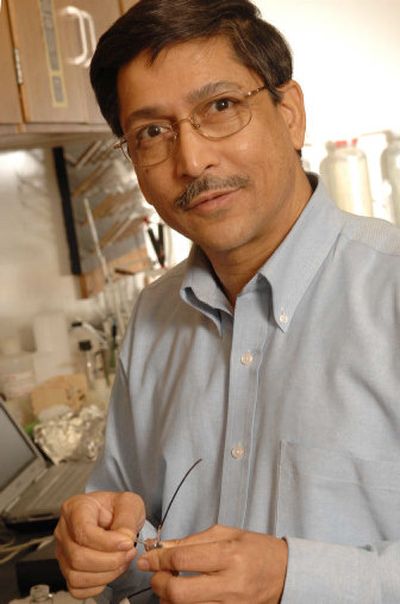Prof honored for design of simple arsenic filter

WASHINGTON – A George Mason University chemistry professor has won a $1 million engineering prize for developing a simple and inexpensive means of filtering arsenic from well water, an advance that is already preventing serious health problems in hundreds of thousands of people in his native Bangladesh and could help millions of others around the world.
The 2007 Grainger Challenge Prize for Sustainability, administered by the National Academy of Engineering, will go to Abul Hussam, of Centreville, Va.
Hussam came to the United States in 1978 as a college teaching assistant. He earned his citizenship, received a doctorate in analytical chemistry and then devoted much of his career to finding a simple solution to a massive problem inadvertently caused by international aid agencies. In 1985, he joined the chemistry department at George Mason in Fairfax, Va.
For decades, institutions had funded a huge campaign to dig simple wells in Eastern India and Bangladesh, bringing fresh groundwater to millions of subsistence farmers and others who had been drinking from ponds and mudholes that teemed with disease-causing bacteria and viruses.
What those agencies did not know was that groundwater in that region has some of the world’s highest naturally occurring concentrations of arsenic, a potent poison. So although the new wells produced a steep decline in infectious diseases, they also gave rise to an epidemic of arsenic-induced skin ailments and, over time, fatal cancers of the lungs, bladder and kidneys.
“I myself and all my brothers were drinking this water,” said Hussam, whose family had two of the now infamous shallow “tube wells” in the agricultural district of Kushtia, where he grew up – one in the kitchen and the other in the yard, both operated by hand pumps.
His family members remained healthy, Hussam said, perhaps because they had a nutritious diet, which can help stem the ill effects that typically accumulate over a decade or more of arsenic ingestion. But when the problem gained wide recognition in the 1990s, he decided to attack it with his knowledge of chemistry.
His final creation – an easy-to-make, maintenance-free, two-tiered system that uses sand, charcoal, bits of brick and shards of a widely available kind of cast iron – removes virtually every trace of arsenic from well water. It wowed an independent panel of engineering academy judges who, under the rules of the prize, were looking for an affordable, reliable, socially acceptable and environmentally friendly solution to the arsenic problem that did not require electricity.
Prize rules also required that the product be proven in field conditions, not just in a lab. Some of the filters have been used in Bangladesh for five years now, Hussam said, and they have neither clogged nor lost their cleansing ability.